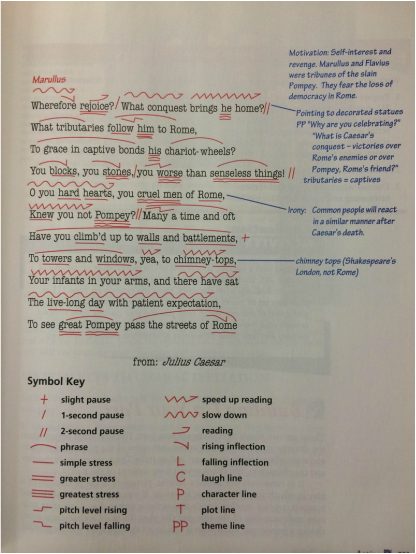Final
About
Create a 3 to 5 minute Scene. You will use several skills to create an interesting scene that invites the audience to willingly suspend disbelief and engage in the world of your imagination. (Note: A scene that does not meet the minimum time expectation will suffer a significant point deduction.)
Process: Students will memorize, rehearse and develop scene. A calendar will be provided to help students keep pace and meet deadlines.
- You will write your scene. It must have a clear introduction, rising action, climax and resolution.
- You will develop the characters, creating a back story, objective and subtext for the character. You may create your own structure for communicating that back story, developing subtext, and objective to your teacher, but it must be clear and thoughtful.
- You will design costumes for the characters that reflect the characters’ style, economic status, age, etc. of the character.
- You will direct the scene.
- Score the scene.
- Select one specific blocking pattern that will dominate the movement throughout the scene--the one that best reflects the scene’s conflict and relationships..
- Design a set. Draw it. Plan to bring or borrow props from the drama class.
- Create distinct stage business--that is, movement that develops character (as opposed to movement that advances the plot).
- Apply the principles of stage movement to the development of the scene.
Process: Students will memorize, rehearse and develop scene. A calendar will be provided to help students keep pace and meet deadlines.
Plot Outline
|
|
|
Write Your Script
|
|
Using the plot outline you created, begin to craft your script! Remember, your scene should be 3-5 minutes long. You may add in the stage directions, but this is not needed.
The first draft of your script is due at the end of class on Thursday, 5/1! |
Scoring a ScriptATTENTION! Read carefully before proceeding!
Score your script with special emphasis on pacing and words you will hit. Make sure to use symbols for speed, pauses, and volume (the "hit"). Realize that when we perform, being nervous makes us speed up our words. Scoring your script will help you slow down and be conscious of speed. Also, scoring will help you to select those lines that are key, which you want to hit with either volume, repetition, or a dramatic pause proceeding or following. This is a chance to be intentional about your use of language. HAVE FUN! P.S. Be sure to read the lines the way you score them, as you score them, to "try them on for size." |
Creating Your Stage
Now that you have your script finished, you need to design the world in which these characters live. The set that you design will influence the blocking that you create. Furniture creates obstacles for movement, but it also creates opportunities for levels and to help show relationships. Please use this worksheet to design your set.

